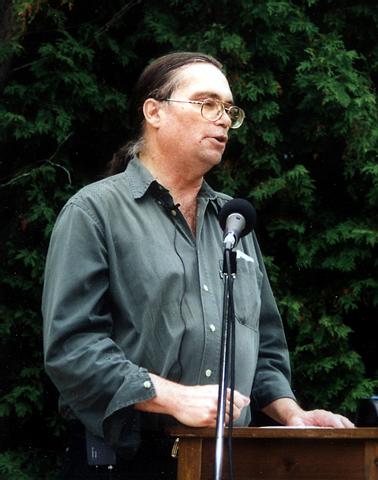
AnthonyFlood.com
Philosophy against Misosophy

George H. Smith
From Libertarian Review, March-April 1977, 8. Review of Brand Blanshard, The Uses of a Liberal Education, Open Court Publishing Co., 1975
Brand Blanshard, The Uses of a Liberal Education
George H. Smith
Brand Blanshard is one of the greatest philoso-phers of our age. In addition to his magnum opus on epistemology, The Nature of Thought, he has written a magnificent trilogy of critical works: Reason and Goodness, Reason and Analysis, and the recently published Reason and Belief. These works reveal a profound, agile mind of remarkable grace, charm, and benevolence. In short, Brand Blanshard is the model philosopher—a worthy ideal for the intellectual in search of a hero.
The Uses of a Liberal Education—a collection of essays and lectures spanning many years—is less technical than the above books; and for this reason it is also more revealing. For in these pages we see not just Brand Blanshard the philosopher, but Brand Blanshard the man—a man of deep commitment to values and to the impartial pursuit of truth.
These essays revolve around the nature and goals of a liberal education, and they share a patient but firm insistence that the aim of education “is to facilitate understanding in all its forms.” The university, therefore, should not concern itself only with the accumulation of knowledge, or with mere technological proficiency in a given field; rather, it should seek the “enlightenment of mind.” This is the criterion by which to judge the relative importance of subjects offered by universities; those subjects concerned with fundamental principles are the most essential for a cultivated mind. Moreover, “Every course in the curriculum should be a course in thinking, in the sense that it should give the student discipline in the sifting of evidence, the drawing of conclusions, and the checking of these conclusions against the facts.”
In opposition to many educationalists, Blanshard believes that values are objective—that one’s judgment of art, for instance, is not simply an issue of taste—and he believes that a function of education is to instill in students a respect for values. “We are threatened,” Blanshard argues, “with a blight of standardlessness, and it is no wonder that students complain of alienation and the meaninglessness of life.” With this emphasis on principles and values, Professor Blanshard quite naturally, concludes that “philosophy lies at the heart of education.” But this, he emphasizes, does not mean a philosophy, in the sense of a specific doctrine. Instead, it pertains to an attitude, a frame of mind—“the philosophic temper, the habit of criticism and self-criticism, the tying of one’s self-respect to being reasonable in belief and behavior.”
The reasonable mind thus constitutes the summon bonum of a liberal education. Such a mind is concerned primarily with facts, with what is actually the case, and it strives to regulate belief and action by this standard. This reasonableness, Blanshard contends, depends not on information as such, but on a disposition or habit. Reasonableness has to become ingrained in one’s character, it has to become an integral aspect of one’s way of life. In advocating this “habit of reasonableness” as an essential goal of education, Blanshard follows in the footsteps of the classical philosophers who viewed the intellectual virtues as habitus, i.e., as a characteristic manner of functioning in varied circumstances. The reasonable man, in this view, is the man who is inclined, by his “second nature,” always to subject his beliefs and actions to careful scrutiny. This does not mean that a reasonable man is without passion; rather, it means that, for a reasonable man, the first passion is truth.
The Uses of a Liberal Education discusses a broad spectrum of other topics, including the idea of a gentleman, conformity, serenity, admiration, courage, machines, and the joy of books. Each of these essays is a gem in itself. But there is another reward to be gleaned from this book, aside from its content. Brand Blanshard is one of the few contemporary philosophers (Walter Kaufmann and Ayn Rand also come to mind) who is able to blend a passion for his subject with a masterful, invigorating style. The result is that The Uses of a Liberal Education serves a purpose commonly reserved for fiction: it provides one with emotional and spiritual fuel. This book should be read slowly, savored, and read again—not because it is difficult, but because it is a delight.
Posted March 1, 2008